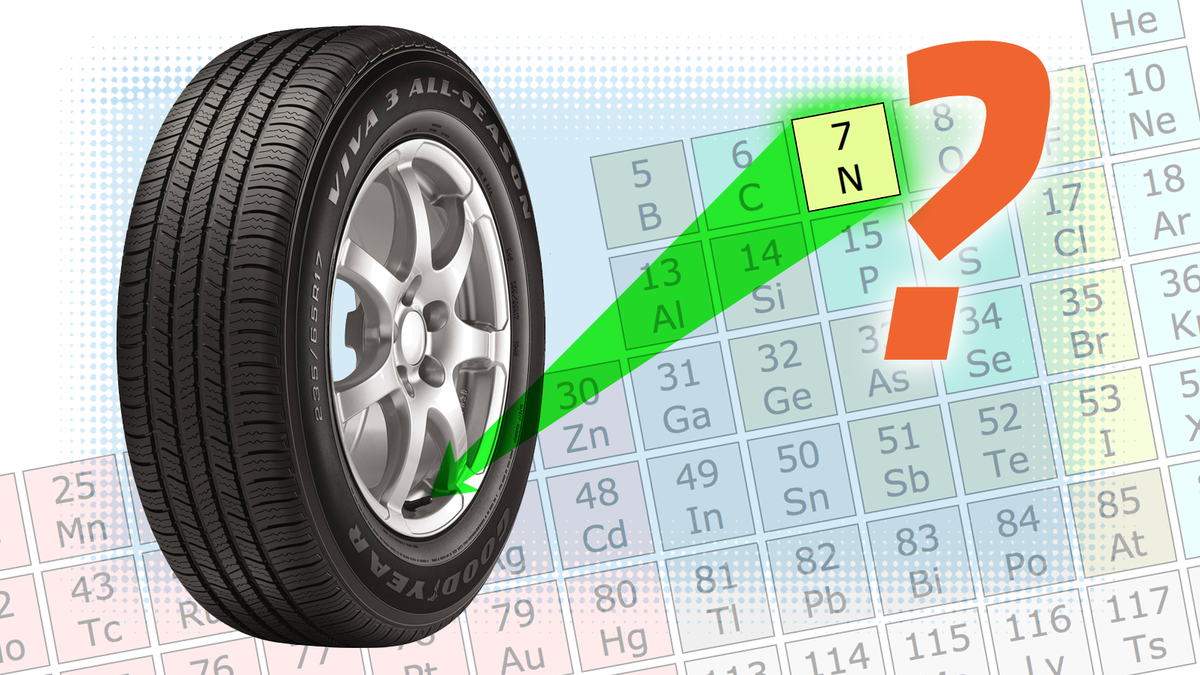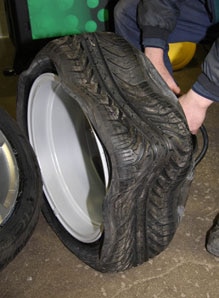
The Get Nitrogen Institute says this about cost. It actually retains the pressure well but the difference is only 13 psi for air-filled tires.

Consumer reports concluded in their testing that nitrogen filled tires do hold set pressure slightly longer but also concluded for the the price charged it was not worth the cost.
Nitrogen in tires worth it. Dealerships and tire shops often charge owners to fill tires with nitrogen at 5 or more per tire during routine service visits or when replacing tires. But is nitrogen worth the price. Nitrogen proponents claim that filling your tires with this gas will save you money on fuel prevent wheel rot and offer better performance than old-fashioned air can give you.
Because nitrogen is more stable than oxygen it is common in the tires of vehicles that require more precision tuning such as race cars industrial machinery aircraft and spacecraft. Nitrogen does offer some advantages over regular compressed air when filling tires. Since the molecules that comprise nitrogens chemical structure are larger than oxygens molecules nitrogen is.
The main benefit of nitrogen-filled tires is that the loss of tire pressure is slower because the gas in the tire escapes more slowly than air does. With more stable tire pressure the thinking goes youll get better gas mileage and get full tire life since youre always rolling on fully inflated tires. Nitrogen costs more than air but proponents cite many benefits.
They claim that because nitrogen molecules are larger they maintain tire pressure longer and add to your tires longevity. Nitrogen can also contribute to better fuel economy although how much is debated and improve driving in wet or slick weather conditions. Well nitrogen has been in use for equipment with tires that require precision for quite some time now.
These include aircraft the space shuttle industrial machinery and even race cars. As such this makes some of us normal guys who drive their cars day-to-day think that nitrogen might be a better alternative than just plain old air. With nitrogen your tire pressures will remain more constant saving you a small amount in fuel and tire-maintenance costs.
There will be less moisture inside your tires which means less. Nitrogen filled tires will require pressure be added during the fallwinter months as ambient temperatures and tire pressures drop. Nitrogen is good but cant change the laws of physics.
Nitrogen reduces the loss of tire pressure due to permeation through rubber over time by about 13. On the other side of the coin filling your tires with nitrogen is more expensive than air. The Get Nitrogen Institute says this about cost.
The average cost to fill a tire can vary from anywhere from 3-10 per tire. This depends on several variables including tire size and tire pressure. Are nitrogen tires actually worth it.
Realistically they are not and are an unnecessary expense for the regular motorist. Nitrogen tires can make a difference in Motorsport where anything that gives you even a split second of performance advantage over a competitor is worth the extra investment. Where it is available nitrogen generally costs 5 - 7 for filling each tire and some tire installers will charge 70 - 180 for a complete nitrogen upgrade.
Converting air-filled tires to nitrogen requires filling and deflating the tires with nitrogen several times to purge all of the air nitrogen must be 93-95 pure to be effective. According to Get Nitrogen Institute tires filled with nitrogen instead of regular air reportedly increase gas mileage wear longer experience less corrosion and maintain more consistent air pressure. Places that use nitrogen to fill and refill tires have become numerous as more and more people are requesting nitrogen for their tires.
Nitrogen is more stable and its rate of seeping through the tire walls is slower than the oxygen. It actually retains the pressure well but the difference is only 13 psi for air-filled tires. Nitrogen is arguably better for tire pressure retention.
Nitrogen has the most bennefit on large tires that are heavily loaded. Less moisture to expand and better temperaturepresure control. Consumer reports concluded in their testing that nitrogen filled tires do hold set pressure slightly longer but also concluded for the the price charged it was not worth the cost.
Nitrogen has the most bennefit on large tires that are heavily loaded. Less moisture to expand and better temperaturepresure control. Consumer reports concluded in their testing that nitrogen filled tires do hold set pressure slightly longer but also concluded for the the price charged it was not worth the cost.
Car tires are easily identified as containing nitrogen because green caps are usually put on the tip of the tire valve. But nitrogen generally isnt free. Fleischmann says his stores charge 700.
Advantages of Nitrogen When we are talking about replacing air in tires with nitrogen its worth noting that air is already composed of 78 nitrogen. So we are really looking at replacing something with a lot of nitrogen to something with even more. While it may seem like a small difference its enough to be a staple for Formula One tires.